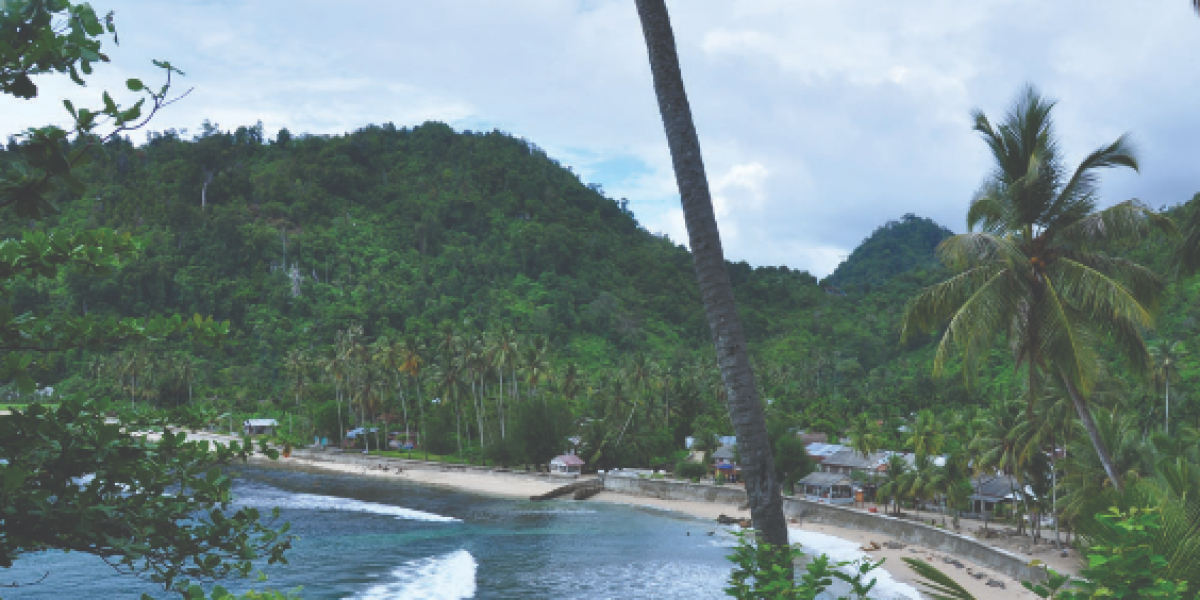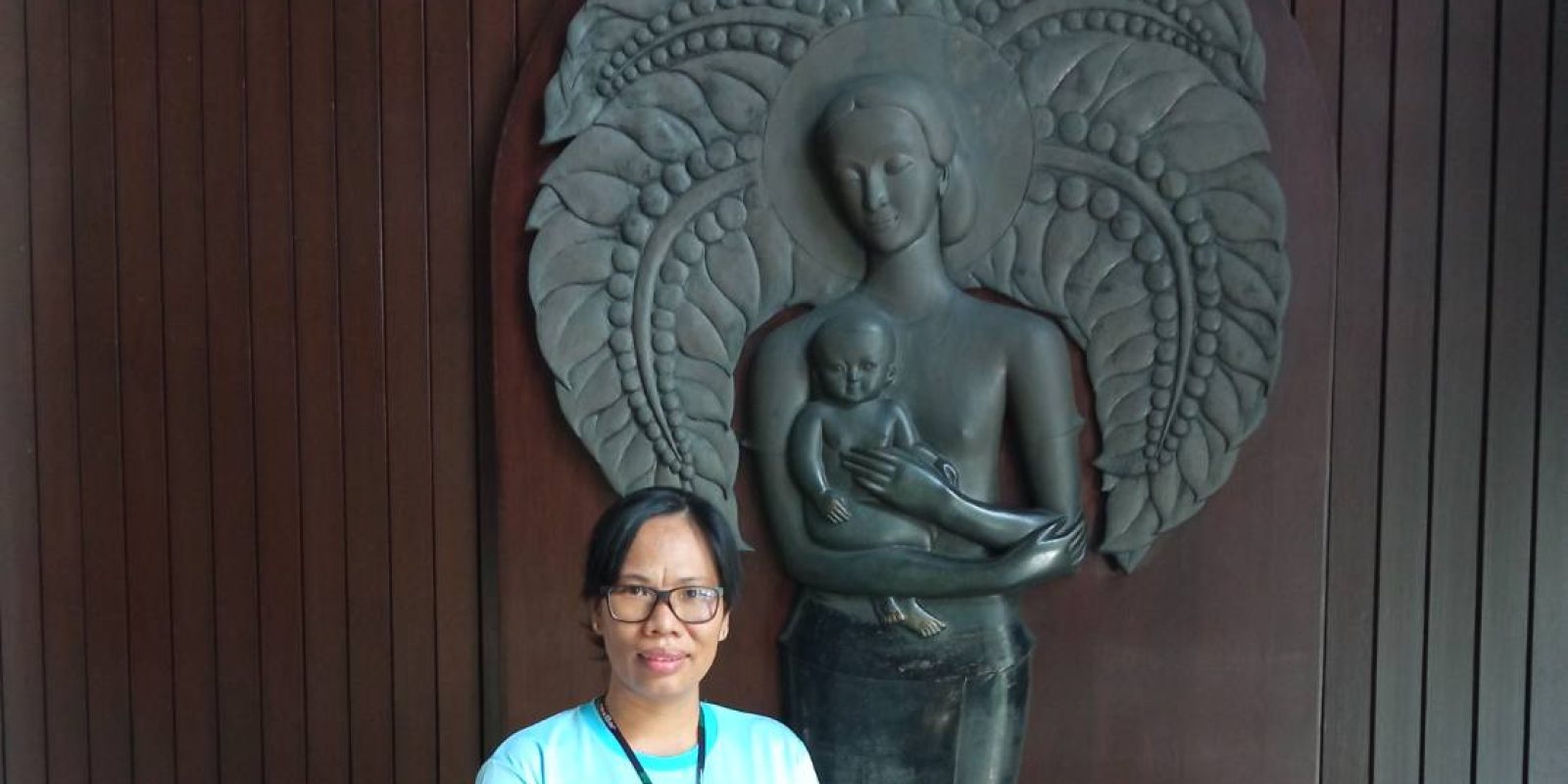Indonesia: Weathering the Storms
13 December 2009|Danielle Vella, JRS International

“What is a Jesuit? I get asked this question all the time.” Zainuddin, a young man from Jogjakarta, received a Muslim education from elementary to university level. His interest in Jesuits arises from his work as education officer with JRS in Aceh, a region in northwest Indonesia hard hit by the 2004 Tsunami and by civil war that ended in 2005. In this province governed by Sharia law, it is villagers benefiting from the intervention of JRS who ask what ‘Jesuit’ means.
Possible answers to this question abound – factual; the history of JRS, that it was founded by a Jesuit; reassurance that it’s not important anyway – but arguably the best reply comes from the Acehnese themselves. When JRS started working in Aceh after the Tsunami struck, the people spelled out the acronym as Jak Rata Sagoe, which in Indonesian means, We go everywhere, we are everywhere.
“It’s not our religion that counts but what we can do together. Families learn what JRS is through what we do,” says Henk, a community officer. The other young Indonesians – some 40 Muslims and Christians from Aceh and elsewhere – on the JRS team agree. The main thing is the shared mission, “to work together for the same vision and goals”, in the words of Doni, community coordinator. Zainuddin believes that his religious background doesn’t make a difference: “I joined JRS because I share its outlook on human rights and humanitarian issues.”
The mission in Aceh builds on the experience of JRS in the Moluccas and East Timor, also once torn apart by conflict. Some team members, like Doni, served there too, others joined when JRS launched a Tsunami response programme in Aceh. Once this programme drew to a close, JRS realised that southern Aceh had received only scant attention from donor agencies, probably because it had not been much affected by the disaster.
And yet the region was in dire need, laid to waste by decades of separatist conflict that pitted the Free Aceh Movement (GAM) against the Indonesian army (TNI). Development was practically at a standstill, swathes of land neglected. People were traumatised, youth especially nursed grievances against the TNI or the GAM and against those who had been obliged to collaborate with either. Advocacy officer Enggal describes the situation as “everything seemingly okay on the surface but with something hidden underneath”. Although peace was agreed in 2005, with Indonesia granting greater autonomy to Aceh, unresolved tensions and the lack of economic prospects jeopardised lasting peace on the ground.
More risks threaten southern Aceh: wedged between thickly forested mountains, rivers and the Indian Ocean, barely two metres above sea level, villages are at the mercy of flooding, landslides and freak waves, whose impact is getting steadily worse over the years.
This scenario prompted JRS to launch a project that at once identifies ways to lessen the impact of environmental disasters and addresses the consequences of the war. “It’s different from the Tsunami aid, where we reacted after something bad happened and just gave something tangible, like food or education,” explains Enggal. “Now we are giving new knowledge, skills and awareness, to prevent displacement and to prepare the villages to resolve problems.”
The project engages different sectors of the community, from children to widows to village leaders to government officials, in disaster risk reduction (DRR). The aim is to understand, to predict and to cope better with natural disasters.
The team has devised countless creative ways of making DRR relevant in each of the three areas of focus: schools, youth and the community at large. Puppets teach the children; women get the message during baking classes. “If we just sat in a meeting and talked about DRR, it wouldn’t work,” says Fatma, a community worker. “But if we say, we’ll bake cakes, they come and we broach the subject like this.”
In schools, JRS trains teachers to integrate environmental education and positive living values – the key ones are love, peace and respect – in daily class. “We start from local values, for example, what does the Koran say about peace?” says Elisabeth, the schools coordinator.
These values permeate the entire project. With youth, they are transmitted mostly through sports, discussion and leadership training. Youth are the backbone of Acehnese communities but they are also uniquely vulnerable. Most of those reached by JRS are ex-GAM combatants or victims of the conflict and some still nurture hatred because of atrocities committed. “On the other hand,” says Enggal, “they realise that with peace, they can live without fear, they can move around freely, have a future.”
Crucially, this approach is linked to sustainable rural development, to meet the foremost expressed need of the villages for food security and means of livelihood. Crops are planted using organic methods, ditches are dug to channel water, equipment is purchased, all according to carefully considered village strategies.
JRS has won the trust of the southern Acehnese. But acceptance was by no means automatic. Some were initially inclined to regard JRS, a Christian organisation, with suspicion or to think that DRR was an impractical waste of time. That they have been convinced is largely due to the faithful presence of JRS and to close collaboration. “We come to listen, to discuss, to learn. By learning from the people, we can understand and do things for and with them,” says Doni.
We go everywhere, we are everywhere. The verdict of Ali Hasmi, the leader of Simpang Dua village, reveals that this community-based approach has paid off: “At first, we considered JRS as foreigners, we felt a bit strange, but now we feel that JRS is part of us.” Thanks to this real partnership, the project promises to be a success. Their thorough involvement will enable the communities to eventually go it alone. JRS will withdraw knowing that it has helped the people of southern Aceh to make a constructive transition from war to peace, and that they can now face future disasters, whether natural or manmade, in a spirit of unity and as effectively as possible.
This article was first published in Servir December 2009


